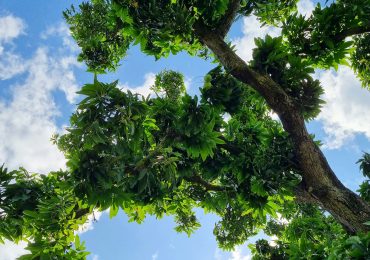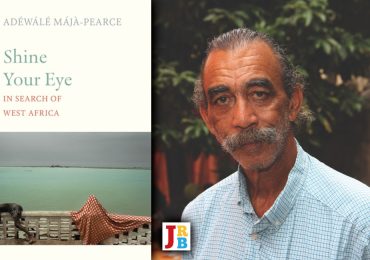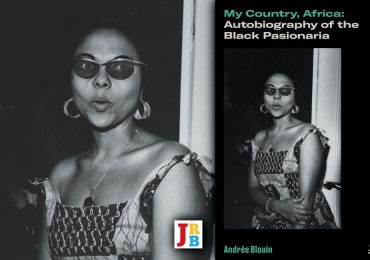It’s awards season in the French-speaking literary world!
A number of big prizes revealed their longlists in the month of September. The Prix Femina nominees include a diverse selection of French fiction, as well as foreign fiction and non-fiction works translated into French for the Prix Femina étranger.
The Prix Femina, created in 1904, is decided each year by an exclusively female jury, although the nominated authors are not limited to women.
The winner is announced on the first Wednesday of November.
Of note on the list is Olga Tokarczuk, who became the first Polish writer to win the Man Booker International Prize this year, for her novel Flights. She is longlisted for her 2014 novel The Books of Jacob (Les livres de Jakob). Nigerian author Abubakar Adam Ibrahim’s wonderful debut novel, The Season of Crimson Blossoms, also graces the list.
David Diop, Pierre Guyotat and Nina Bouraoui appear to be the critic’s favourites for 2018, as they are also nominated for both the Prix Médicis and Prix Renaudot.
In Frère d’âme, Diop writes about violence on a grand and personal scale, as two Senegalese friends fight for the French during World War I. Bouraroui’s intimate autofiction Tous les hommes désirent naturellement savoir explores knowing and becoming through memories of a childhood in Algeria and recollections of heartbreak and discovery in gay nightclubs. Guyotat’s autobiographical narrative Idiotie deals with his entry into adulthood, between his nineteenth and twenty-second year, from 1959 to 1962.
The 28 books below make up the Prix Femina longlists:
Prix Femina
- Emmanuelle Bayamack-Tam, Arcadie (POL)
- Yves Bichet, Trois enfants du tumulte (Mercure de France)
- Nina Bouraoui, Tous les hommes désirent naturellement savoir (J-C Lattès)
- Isabelle Desesquelles, Je voudrais que la nuit me prenne (Belfond)
- Régine Detambel, Platine (Actes Sud)
- David Diop, Frère d’âme (Seuil)
- Clara Dupont-Monod, La révolte (Stock)
- Michaël Ferrier, François, portrait d’un absent (Gallimard)
- Pierre Guyotat, Idiotie (Grasset)
- Philippe Lançon, Le lambeau (Gallimard)
- Olivier Liron, Einstein, le sexe et moi (Alma)
- Vanessa Schneider, Tu t’appelais Maria Schneider (Grasset)
- Tiffany Tavernier, Roissy (Sabine Wespieser)
- Philippe Vasset, Une vie en l’air (Fayard)
Prix Femina Etranger
- Marco Balzano, Je reste ici, translated from Italian by Nathalie Bauer (Philippe Rey)
- Stefan Brijs, Taxi curaçao, translated from Dutch by Daniel Cunin (Héloïse d’Ormesson)
- Javier Cercas, Le monarque des ombres, translated from Spanish by Aleksandar Grujicic, with collaboration from Karine Louesdon (Actes Sud)
- György Dragoman, The Bone Fire (Le bûcher), translated from Hungarian by Joëlle Dufeuilly (Gallimard)
- Vivian Gornick, The Odd Woman and the City (La femme à part), translated from English by Laetitia Devaux (Rivages)
- Stefan Hertmans, Le cœur converti, translated from Dutch by Isabelle Rosselin (Gallimard)
- Nicole Krauss, Forest Dark (Forêt obscure), translated from English by Paule Guivarch (L’Olivier)
- Abubakar Adam Ibrahim, The Season of Crimson Blossoms (La saison des fleurs de flamme), translated from English by Marc Amfreville (L’Observatoire)
- Alice McDermott, The Ninth Hour (La neuvième heure), translated from English by Cécile Arnaud (La Table ronde)
- Itamar Orlev, Bandit (Voyou), translated from Hebrew by Laurence Sendrowicz (Seuil)
- Jón Kalman Stefánsson, Asta, translated from Icelandic by Eric Boury (Grasset)
- Gabriel Tallent, My Absolute Darling, translated from English by Laura Derajinski (Gallmeister)
- Olga Tokarczuk, The Books of Jacob (Les livres de Jakob), translated from Polish by Maryla Laurent (Noir sur blanc)
- Samar Yazbek, The Blue Pen (La marcheuse), translated from Arabic by Khaled Osman (Stock)





